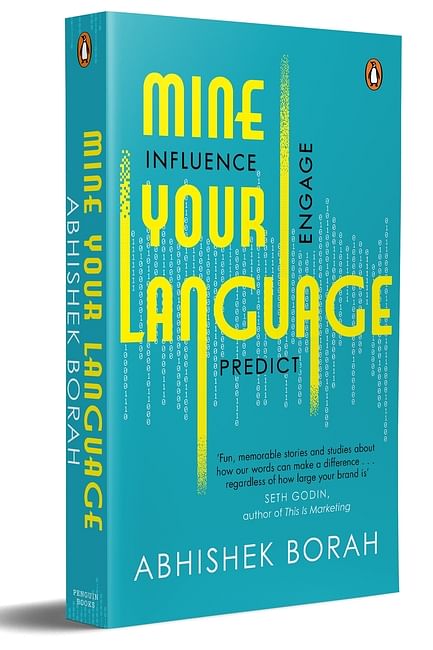The top three spoiler-related topics were: ‘Disappointment,’ ‘Kill’ And ‘Death.’ Indeed, ‘Kill’ and ‘Death’ are usually involved in crucial plot points in movies. The topic of ‘Disappointment’ is associated with the words ‘worst,’ ‘ruin’ and ‘disappoint.’ The top topic related to non-spoiler reviews was ‘Cinematography’, which includes representative words such as ‘beautiful’, ‘visual’ and ‘set’. As you probably noticed, these words are related to the aesthetics and visuals of the film and are unrelated specifically to the movie’s narrative.
By counting the number of words related to each of the twenty-three topics per movie review, the authors next constructed the spoiler intensity for each film every day. Where do the authors collect the movie revenues data, and what should the timeframe be?
The authors collected the revenue and number of theatres where a movie was playing from BoxOfficeMojo.com and IMDb. Because about 97 per cent of movie revenues are generated in the first two months after a movie is released, they collected figures on daily box office revenue and the daily number of theatres for the first two weeks where the movie was playing.
Okay, so the authors have the spoiler intensity metric and the movie performance data. What next? Of course, the main analysis. They estimated a regression model, which allowed them to see if spoiler intensity increases or decreases box-office performance. Note that the model controlled for many other characteristics that can influence box-office performance, such as advertising, if it was a holiday, day of the week, and many others.
What did the authors find? I will not play spoilsport and test your patience.
Voila!
Surprisingly, the study found that spoiler intensity increases rather than decreases box-office performance for a movie. Ryoo and his co-authors found, in economic vocabulary, a spoiler elasticity of .06, which means if the spoiler intensity measure changes by 1 per cent, box office revenues will increase by about 0.06 per cent.
How do they explain this? Aren’t spoilers supposed to harm movie revenues?
The primary variable that the authors use, ‘spoiler intensity’, depends on the idea that spoilers reduce the uncertainty about a movie’s quality. Especially for experiential products such as movies, it is difficult for consumers to evaluate before consumption. So, the reason spoilers increase revenue is readers appreciate the quality uncertainty that is lessened.
To examine what movies benefit most from spoilers and ensure their theoretical argument that uncertainty reduction was the main driver, the authors ran a series of tests using the data they had collected.
Let’s see some situations when there is more uncertainty about a movie’s quality.
The first is when the user ratings for a movie are average. If I hear of a mystery movie that is doing well and has rave reviews (without spoilers of course), will I get offended if I read a spoiler? Of course, I will. I was aware that the movie The Sixth Sense had suspense, was rated very highly and thus almost hibernated to curb anyone from spoiling the joy of watching the suspense unravel. What about movies that are pretty bad and have a 1-star review? I will not care about these reviews anyway, spoiler or not. How about movies with mixed ratings? Films in the middle range of ratings generally signal ambiguity about a movie’s quality. If uncertainty reduction is a strong driver of spoilers in positively influencing movie revenues, these are the spoilers that should impact movie revenues more.
Second, another context where a movie might benefit from a spoiler is when it has less advertising. Apart from the many functions of advertising, one crucial role espoused by economics scholars is the informative aspect of advertising. Research has shown advertising reduces product uncertainty for buyers and is a credible signal about quality. Thus, for films that have less advertising and more uncertainty, the effect of spoilers should be more potent.
Third, many movies have only a limited release, especially independent and arthouse films. Unlike blockbusters with a high marketing budget, these movies don’t have a wide distribution and only see a limited release. This strategy is often employed by arthouse and independent filmmakers who make more artistic films. Indeed, I will have more uncertainty about the artistic quality of an independent movie than a mainstream movie. Thus, movies with limited release should have more uncertainty attached to them.
Finally, spoilers should work more during the early periods of a film’s release rather than later. As a movie progresses through its life cycle from its first day of screening, the uncertainty about a movie reduces because the box office revenues indicate its quality. Higher-quality movies tend to have higher box office revenues than low-quality movies.
Indeed, Ryoo and his colleagues find spoilers have a more substantial effect on box office performance if a movie has average user ratings, is a limited release, has less advertising, and is in the early stages of its release.
Who would have thought that spoilers don’t ‘spoil’ box office revenues but, in fact, have a beneficial effect on a movie’s success?
So, what do these results mean for managers of works of art, such as film producers, television show makers, publishers of novels, creators of game shows and other works of art?
First, online review platforms should not prohibit reviews with spoilers. These spoilers can reduce quality uncertainty for readers of reviews and provide diagnostic information about a work of art such as movies, television shows, novels and so on.
Second, online review platforms should also maintain spoiler warning alerts if they have one. This type of mechanism first allows readers to be aware of reviews and to self-select when reading spoiler reviews if they are interested.
Third, managers of works of art with a limited release and average user ratings should be more open to online word of mouth and flexible in the types of reviews these works of art get. If word of mouth stimulates spoiler reviews, even better. Works of art with smaller marketing budgets, therefore low advertising, can monitor the online reviews of their creations and accordingly decide to keep the advertising at a minimum level if there are a lot of spoiler reviews for their products.
Fourth, managers should monitor for spoilers in reviews more in the early stages of a work of art’s life cycle rather than later. Monitoring reviews for spoilers would not be worthwhile in the later stages.
Finally, apart from the volume of reviews, average ratings and the sentiment of reviews, managers can also include spoiler reviews as another component they can use for predicting a movie’s success. Managers nowadays routinely collect online review data to understand the likelihood of a product’s success.
As you may remember from the beginning of this chapter, even after the viewer watching the Nordic noir knew who the murderer was, he still watched the show. Perhaps the spoiler reduced his uncertainty about the show’s quality.
 This excerpt from Mine Your Language: Influence, Engage, Predict by Abhishek Borah has been published with permission from Penguin Random House India.
This excerpt from Mine Your Language: Influence, Engage, Predict by Abhishek Borah has been published with permission from Penguin Random House India.



